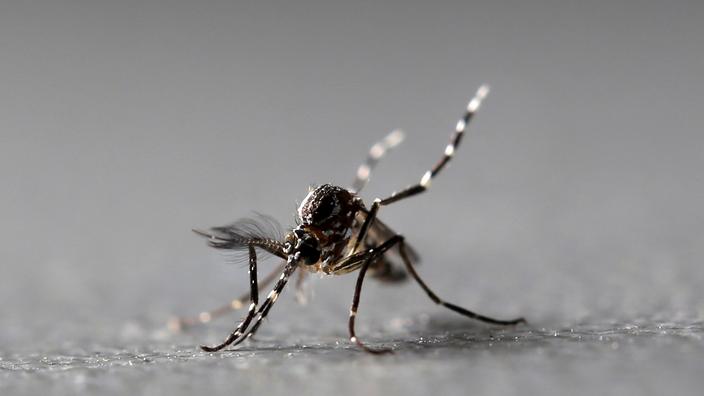Genetically modified tiger mosquitoes arrive in Florida.
After more than ten years of efforts, the British biotechnology company Oxitec started the dissemination of eggs in the wild last week.
Over the next three months, nearly 144,000 male "GMO" mosquitoes - which do not bite humans - will proliferate in Monroe County.
Ultimately, they should be in the millions.
Their mission will be to curb the proliferation of
female
Aedes aegypti
,
tiger mosquitoes, vectors of diseases transmissible to humans (dengue, zika, etc.).
Concretely, these laboratory mosquitoes will mate with "wild" females.
They will transmit to them a gene which will prevent the larvae resulting from this union from being viable.
This should reduce in a few weeks the population of tiger mosquitoes capable of transmitting viruses to humans, while avoiding chemical insecticides, which are less and less effective.
To discover
Covid-19: instructions for use of self-tests
To be better monitored, Oxitec insects are also provided with another modified gene, a fluorescent marker.
Illuminated with a special light, they are supposed to glow.
Opposition of the population
This project has received all federal and state approvals - including that of the United States Environmental Agency. But these GMO insects are far from unanimous among the local population. Dozens of residents have expressed their anger in recent months.
“We have a lot to lose and very little to gain,
” angered John Timura, a fisherman, interviewed by the
Miami Herald
, the local newspaper. “
If the trial fails, how are they going to catch up with these millions of mosquitoes? By hand ? [...] We are going to have to suffer the consequences ...
», plague for his part John Moreno, an inhabitant of the small island of Tavernier. Some residents are also worried about the potential presence of this “GMO” mosquito in the food chain.
"If animals eat them, they could be poisoned, but we do not know because they have not done any research on this subject
", panics Isabelle, 11 years old.
The Oxitec mosquito suppressed up to 95% of Aedes aegypti individuals in 13 weeks.
A press release
The technique would not be so safe, according to opponents who brandish an article published in the journal Nature in September 2019. He relates that a similar trial carried out between 2013 and 2015 by the company Oxitec in the Bahia region of Brazil led to the emergence of a mutant strain of
Aedes aegytpi
mosquito
. Some eggs would have managed to hatch. "
Obviously, the rare viable hybrid descendants [...] are sufficiently robust to be able to reproduce in nature
", warned American and Brazilian scientists. This work, described as "
speculative
", was strongly contested by the company Oxitec. The company prefers to build on its successes: “
In the Brazilian city of Indaiatuba, [...] the Oxitec mosquito has suppressed up to 95% of Aedes aegypti individuals, vector of disease, in urban environments prone to dengue after only 13 weeks
”, explains the biotechnology firm in a press release.
Oxitec is confident, but still took some security measures.
The firm has not disclosed the exact locations of the boxes containing the eggs.
Ultimate security in the United States: These have been installed on private property.

